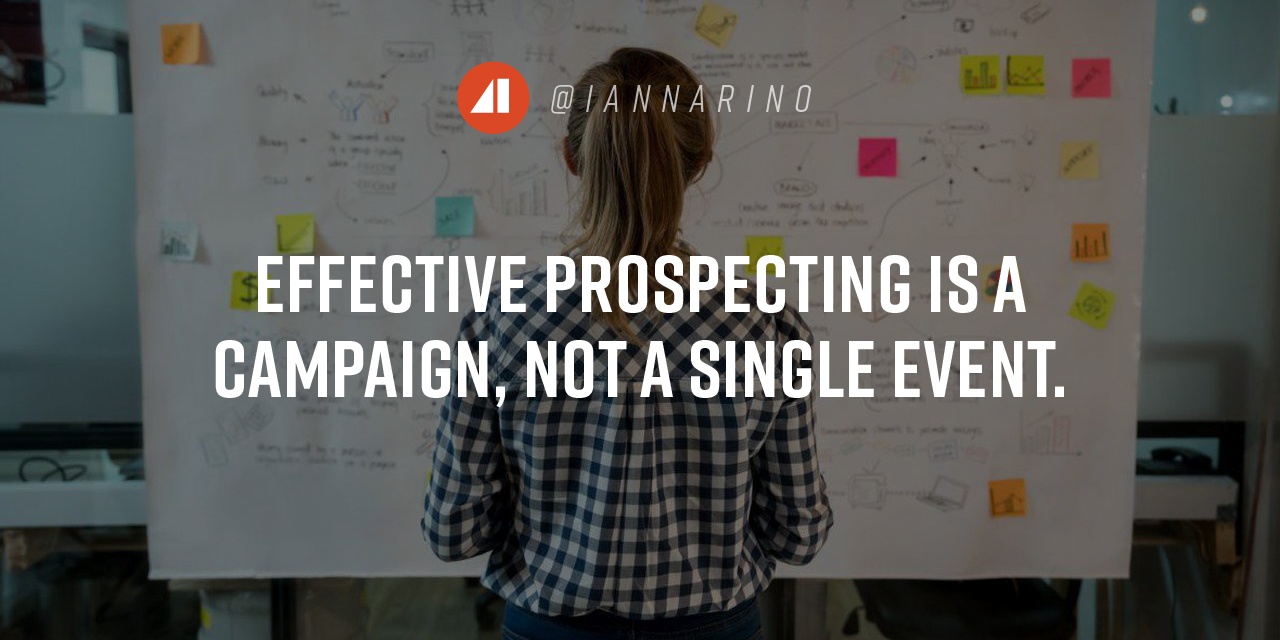The first book I published was titled The Only Sales Guide You'll Ever Need. I wrote it because I recognized that B2B sales had evolved in ways that few people were talking about. It is not uncommon for sales organizations to miss the inflection points, especially when a team has done something in a certain way for a long time. When something is a decades-old habit, it’s easy to miss that it is losing its effectiveness.
The first half of The Only Sales Guide centers on a set of character traits we call mindset. The second half of the book focuses on a list of skills, including new ones necessary to succeed in sales today. What The Challenger Sale calls commercial insight, I call business acumen. In the years since my first book was published, the sales competency model that formed the foundation of The Only Sales Guide was proven right.
The truth is that B2B is evolving in a certain direction that encompasses and transcends what has come before. In this new sales landscape, your business model, your goals, and your preferences don’t matter. To succeed in sales, you need to move with the current. When buyers change, you must change. Here are the ten sales training courses you need now.
Value Creation
In 2018, I published Eat Their Lunch: Winning Customers Away from Your Competition. The first chapter provides a framework for creating value because most sales organizations take a transactional approach. To create value, you must start with the strategic outcome that C-level decision-makers care about and work backward to your solution.
There is no skill more important to your sales results than a value creation model, which is the key to providing a differentiated sales conversation your clients find valuable. You will never win every client you want, but you will win every client that wants you.

Business Acumen and Information Disparity
You might have a title that suggests you are in sales, but your client doesn't need another salesperson using the legacy approach. That explains why sales is broken. Your client wants someone who is an expert, a business advisor, a consultive salesperson, and a strategic partner. To rise to this challenge, you need business acumen, a deep knowledge and understanding of the industry to provide your clients with guidance that leads them to success.
Proof of your business acumen is that there is an information disparity between you and your client, meaning you know what your client doesn't. By transferring your knowledge and experience to your contacts, you provide them with the ability to make a good decision and improve their results.
Consultative Prospecting
These first two sales training courses prepare you for the third course. When you know what your clients value, and you have the business acumen to help them, you make prospecting much easier. Most people who complete this sales training course improve their ability to command a meeting from senior leaders.
To get a first meeting, you need to trade enough value that your contact will accept your invitation. You don't need more activity if you learn a consultative prospecting approach.

Gaining Commitments and Closing
The reason you need a course on gaining commitments and closing is because sales comprises conversations and commitments. In the Lost Art of Closing: Winning the Ten Commitments That Drive Sales, there is a framework for facilitating the buyer's journey by working through 10 critical conversations.
The first thing you ask a prospective client for is a meeting. When that meeting ends, you ask for another. Those who lack control of the sales conversation will experience stalled deals and poor results.
Resolving Concerns
Overcoming objections is a legacy approach to sales. It assumes that you need to address whatever your client throws at you, and that every objection should be taken at face value. This is outdated. Instead of tackling the objection, you must look past it and resolve the real concern that prevents your contact from taking the next step.
A good course would teach you to recognize that clients can't move forward if they are uncertain. Instead of trying to handle the objection, learn to be a professional and create certainty. Instead of looking to quickly overcome some superficial complaint, fully address the underlying concern.

Advanced Discovery Strategies
Most sales courses on discovery will teach you to ask questions so you can acquire the information you need. That skill is important, but it is more powerful when you pair it with questions that provide your contacts with information they need.
When your client says, "That's a great question," they’ve learned something from what you asked. This is the nature of being One-Up, an idea you will find in Elite Sales Strategies: A Guide to Being One-Up, Creating Value, and Becoming Truly Consultative.
Power Questions
There are questions you can ask that hit harder than the ones most salespeople ask their clients. Your questions should prove you are an expert and position you as a potential strategic partner. When you ask the same questions as other salespeople, you position yourself as more of the same. Power questions help you differentiate yourself, positioning you as an authority who understands the client’s business on a strategic level.
Never ask a question you should already know the answer to. For example, instead of asking a question about pain points, explain why your client is experiencing poor results.
Presentation for Modern Sales
If there is one place where sales has made little to no progress, it is in presentations. They are a little boring. No one needs to see your corporate office's picture or be bludgeoned with a history of your company.
A modern sales approach includes a client-oriented presentation, one that is highly focused on the client’s current state and their future state, and how they can improve their results with your help.

Negotiation Techniques
If you broaden your idea of negotiation, you'll recognize that you negotiate many commitments throughout the sales conversation. For example, an outcome like identifying the stakeholders who need to be included in your meetings can be the result of early negotiation. But what's most important here are negotiation techniques that allow you to avoid concessions and negotiate a fair trade for whatever you agree to give.
You never want to ask permission to run back to your sales manager to see what you are allowed you give and what you might accept.
Differentiation and Triangulation Strategies
When you tell your client that your company and your solutions are different, you use the same strategy as the hundreds of salespeople who have come before you. Instead of differentiating yourself and your company, you project that you are a commodity, someone who can be easily exchanged for the next salesperson.
Businesspeople look at differences in business models. Because you are a business advisor, you need to speak business. A modern course on differentiation would look more like a strategy class that would help you explain to your contacts how and why your model is right for them.
It is essential for any salesperson to understand and master the skills and techniques associated with modern sales. Having the right attitude and the skills described here are key components of a successful sales approach. These are the best sales courses you need now. With the right skills and knowledge, sales professionals can create a sustainable and successful career.












